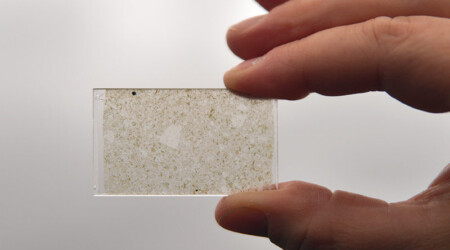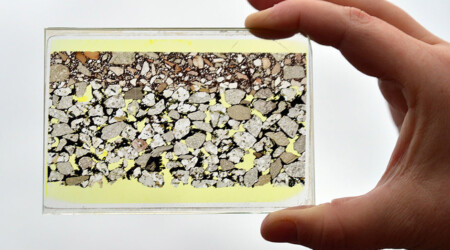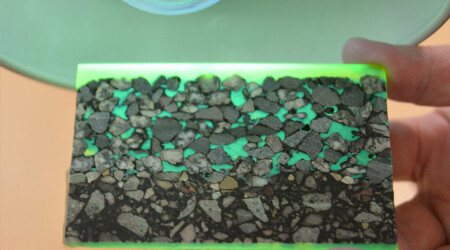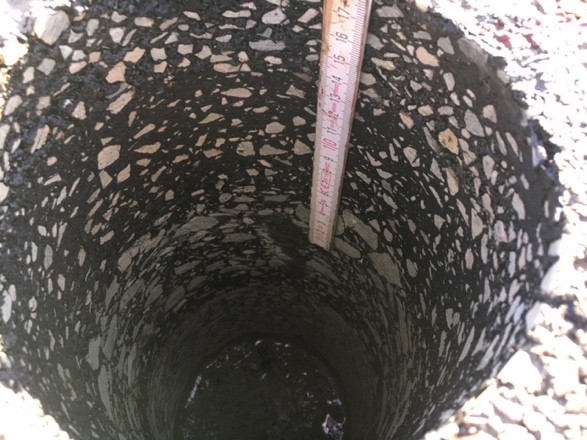Testing
The asphalt petrology suplements the usual asphalt technology testing methods with the following methods, among others:
- Image analysis of asphalt surfaces
- reflected and transmitted light microscopy including polarisation and fluorescence methods
- Computer tomography (CT)
- Electron microscopy X-ray analysis
- Scanning electron microscopy (SEM)
- Transmission electron microscopy (TEM)
- Energy dispersive X-ray spectroscopy (EDX)
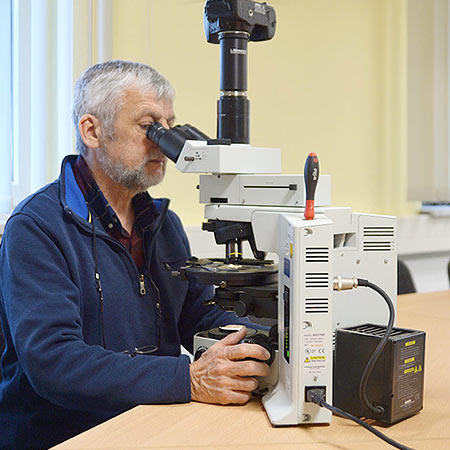
Beispiele für Auflicht- und Durchlichtmikroskopie
- Standard thin section for rock petrology in Giessen format (48 mm x 28 mm) – rock thickness 25/1000 mm
- Large thin section developed for asphalt petrology (110 mm x 76 mm) – Asphalt thickness: 25/1000 mm
- Asphalt polished sectin, prepared with fluorescent epoxy resin under UV light ‘the cavity glows’
Gallery shows preview images of thin sections
Click on an image to enlarge the view
Asphalt petrological methods in practice and in research
Steckbrief1
Uncontrolled water flow within asphalt structures
Technical background / task
Uncontrolled water-bearing layers in multi-layer asphalt constructions can lead to premature failure of the pavement and danger points in the area of water leaks.
There are no standardised test methods available for this little-noticed failure case.
Suitable methods
- Extraction of drill cores in the area and catchment area of water leaks
- Georadar measurements in addition to 1
- Preparation of vertically orientated asphalt polished sections with fluorescent epoxy resins from the drill core, determination of the vertical optical cavity distribution in addition to the classic asphalt technological laboratory tests.
Damage patterns
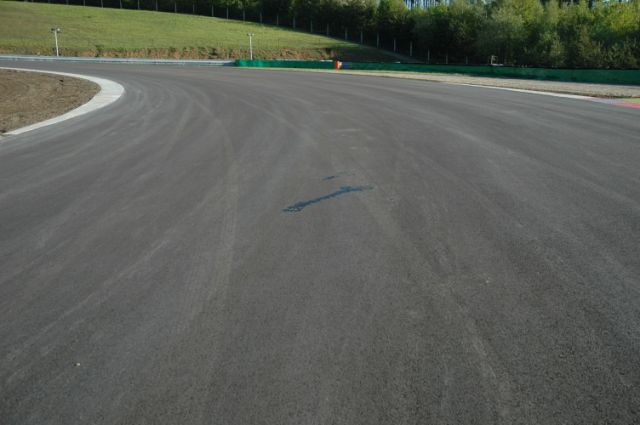

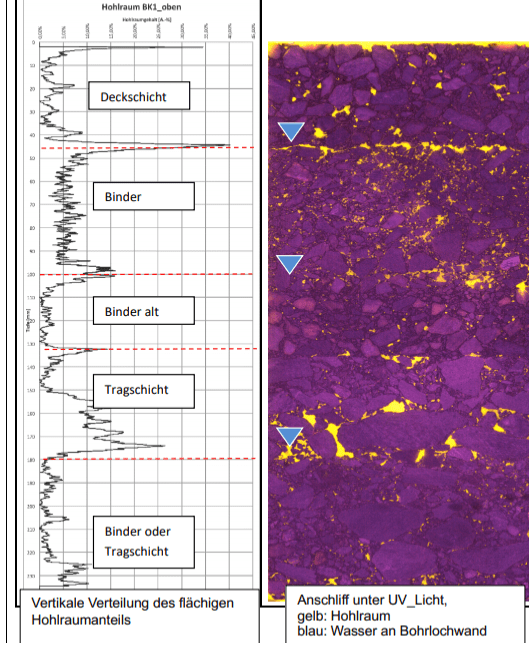
Result
Asphalt petrology enables cavities to be determined across layers. Water ingress occurs in areas with extremely high void contents. Potentially water-bearing zones can be determined by asphalt petrology regardless of the weather.
Laboratories for asphalt petrology
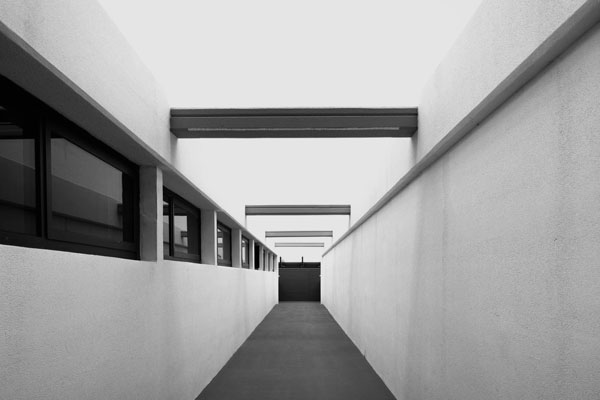
TU Darmstadt Institute of Transportation and Infrastruccture Engineering
Otto-Berndt-Str. 2
D-64287 Darmstadt
mail: strassenwesen@sw.tu-darmstadt.de
Website: www.verkehr.tu-darmstadt.de/sw
IBQ Institut für Baustoff- Qualitätssicherung GmbH
Erich-Herion-Straße 1
70736 Fellbach
mail: info@ibq-institut.de
Web: ibq-institut.de
Institute for Materials Testing
Dr. Schellenberg
78628 Rottweil
rottweil@ifm-dr-schellenberg.de
www.ifm-dr-schellenberg.de

